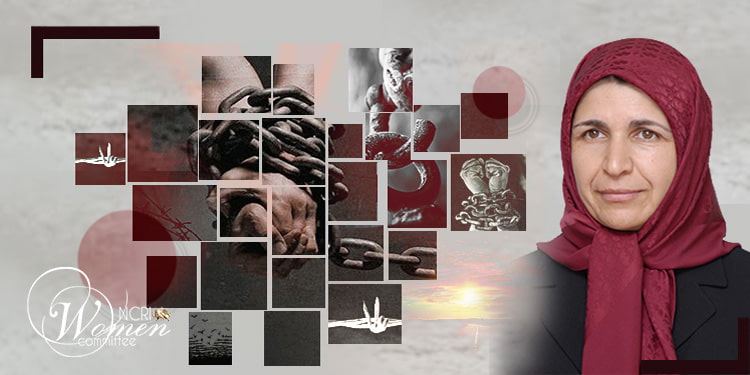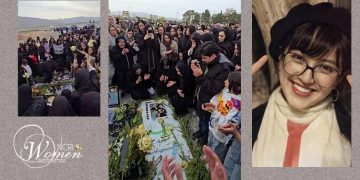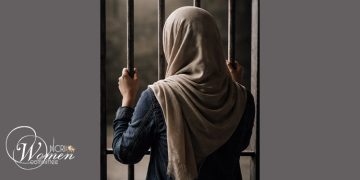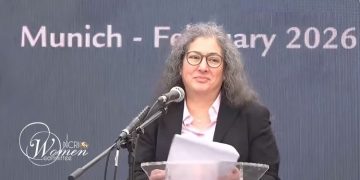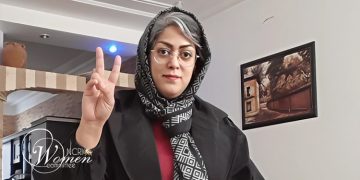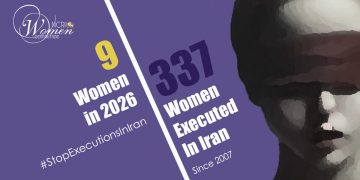From the memoir “The Last Laughter of Leila” by Mehri Hajinejad
Mehri Hajinejad was a teenage member of the student network of the People’s Mojahedin Organization of Iran (PMOI/MEK) when she was arrested by agents of the Iranian regime in August 1981. She had been active in Tehran schools since 1979, organizing students and distributing underground publications. Following her arrest, she spent nearly five years in the regime’s prisons — Evin, Ghezel Hesar, and Gohardasht — enduring severe torture and witnessing the resistance of countless political prisoners. Her memoir, The Last Laughter of Leila, recounts those years of captivity and the unbroken spirit of her fellow inmates. The following is the first part of her prison memoirs, edited for publication.
The Moment of Arrest
It was Eid al-Fitr, August 2, 1981. I had a meeting with my supervisor, Vajiheh Ebadi. She told me that this week would be the final round of our recruitment campaign, and that our student team would soon be transferred to a new organizational structure. I was thrilled. I couldn’t wait to join the new student division. That week, we worked faster and harder than ever.
Our next meeting was scheduled for August 11. The summer heat was suffocating that day, the kind of heat that makes walking through the city unbearable. My meeting with Vajiheh was at around six in the evening. I was excited that once I reported the results of reconnecting with several cut-off members, she would finally link me to the new structure.
When she arrived, we walked together for about an hour as I gave my report. Then she told me to stay for three days in a house on Karun Street, in case I could find the last missing members. The house had been a public office, already under some surveillance, and many students had its phone number. I was to stay awake at night, ready to evacuate at any moment. The place was considered a red base, meaning it was compromised.
The neighborhood itself was also red for me because our high school was nearby. After a recent confrontation that got me expelled, my photo had been circulated among local pasdars (Revolutionary Guards) and komiteh militia, who had an arrest order for me.
Around seven that evening, I said goodbye to Vajiheh, got into a taxi, and headed west. Near the Veterinary College I got off to continue on foot through the backstreets to my friend Akram’s house. I hadn’t walked far before I noticed suspicious movement around me. Several men seemed to be shadowing me.
I quickened my pace and reached the main street to flag a car, but before I could, one of them stepped forward and said, “Are you Miss Hajinejad?” while holding up my school ID. I denied it, “No, that’s not me.”
The circle around me tightened. He said, “Then just come with us for a few questions, because this photo is yours.” They dragged me into the basement of Abolfazl Mosque.
Everything happened so fast. I told them, “I don’t understand Farsi well. Bring someone who speaks my language.” They immediately snatched my handbag away and called in a woman to search me.
When the woman entered and lifted her chador, I was shocked. Beneath that so-called “Islamic” covering, she was wearing a sleeveless red mini dress. I couldn’t believe that this was one of those female guards who roamed the streets harassing women for a few strands of uncovered hair. Still, she searched me.
I told her, “I’m fasting. Give me my bag so I can break my fast.” In that brief moment, I tore up and swallowed every document I had, wrapped in the sandwich bread from my bag. Once that was done, I finally felt relieved.
Then I started protesting. “Why am I here? My family will be worried!” They only said, “Wait.” They kept coming and going, whispering among themselves. I wondered if they were waiting for the streets to empty before moving me.
From 10 p.m. to 5 a.m., they interrogated me right there in that basement. Every question came with a punch or a kick. I kept saying, “What right do you have to hold me here? I have nothing to do with this name you’re accusing me of! I came from another city.”
They demanded an address. I said, “I don’t know Tehran well, but if you come with me, I can show you.” My goal was to get them to move me. I planned to escape in the dark. But they refused to transfer me at night.
Finally, they told me, “Draw the location on paper. We’ll go ourselves.” I drew a false map and said, “The streets have two names, you won’t find it without me.” They left, and when they returned an hour later, they beat me savagely.
They shouted, “You lied! This picture is you!”
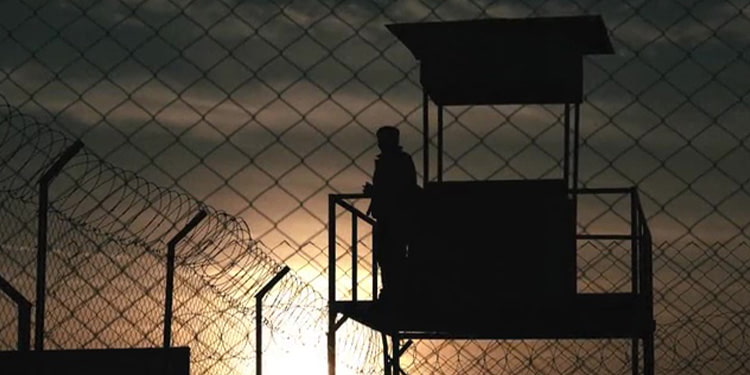
At 5 a.m., they handcuffed me, shoved me into the back of a car, and sat on both sides of me as we drove toward Evin.
When the car entered the highway leading to the prison, they blindfolded me. I decided then and there that I would jump, no matter what.
When I sensed the car speeding up, I leaned toward the door, pushed the handle open with my mouth, and tried to throw myself out. The pasdar beside me panicked; the driver lost control, and the car swerved violently before coming to a stop on the roadside.
The guard started punching and kicking my head, shouting, “What were you trying to do?” I yelled back, “Who knows who you people are or where you’re taking me? I wanted to kill myself! You’re a gang of criminals!”
I screamed as they restrained me again. Then the car moved on toward Evin.
To be continued…
Footnotes:
- Komiteh – local paramilitary committees active in post-revolutionary Iran, known for enforcing ideological and social control.
- Chador – full-body veil worn by some Iranian women, often mandated in state institutions.
- Red base – a term used by underground activists meaning a safe shelter suspected of being under surveillance or compromised.



